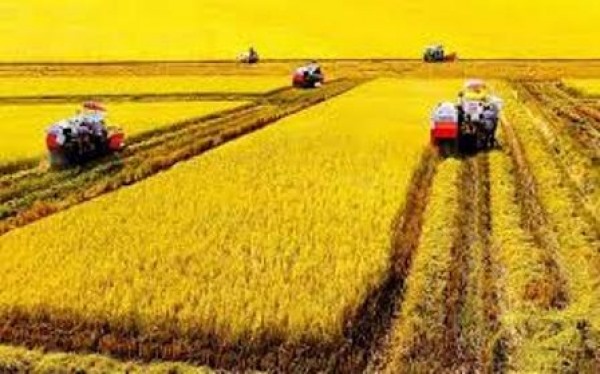 Society
Society

Automation and mechanisation in rice and vegetable production in the Mekong Delta is expected to sharply reduce losses and increase value, the Agriculture and Rural Development Ministry has said
 |
| The government is to encourage production of agricultural machinery. -- lyluanchinhtri.vn |
HCM City – Automation and mechanisation in rice and vegetable production in the Mekong Delta is expected to sharply reduce losses and increase value, the Agriculture and Rural Development Ministry has said.
The losses in rice production stand at 5-6 per cent (3 million tonnes a year or US$760 million), according to the ministry’s Department of Processing and Trade for Agro-Forestry-Fisheries Products and Salt Production.
“If the proportion falls to around 3 per cent, farmers’ incomes could rise to VNĐ1 million ($45) per hectare,” a representative of the department said.
Automation and mechanisation in rice planting and harvesting remains low.
The Mekong Delta has more than 5,500 harvesters being used on 40 per cent of farmland, while rice-planting machines cover only 30 per cent.
Automation and mechanisation in vegetable production is much lower than in rice production.
In general, the Mekong Delta has 1.6-horse power per hectare, while the figure in Thailand is four, China eight and South Korea 10.
“Automation and mechanisation in agricultural production will increase labour productivity, reduce costs and increase competitiveness for farmers,” Dr. Võ Hùng Dũng, director of the Việt Nam Chamber of Commerce and Industry’s Cần Thơ branch, told the Thời báo Kinh tế Việt Nam (Việt Nam Economic Times) newspaper.
“The potential for development of automation and mechanisation in Việt Nam’s agricultural production is huge,” he added.
Most agricultural machines are based on production of small workshops with outdated technologies, design and post-sale services.
Preferential policies
From 2004 to 2008, the Government allowed provincial authorities to subsidies the interest rate for farmers who bought machines for agricultural production.
After five years of the programme, tens of thousands of agri-motors and tractors are now in use.
Since 2009, the Prime Minister has released a series of decisions to subsidise interest rates for farmers to buy machines equipment, and material for agricultural and fisheries production as well as house construction in rural areas.
The Government and the Ministry of Agriculture and Rural Development have developed strategies to promote investment for machine automation in agricultural production with preferential policies on tax, credit and land. – VNS




